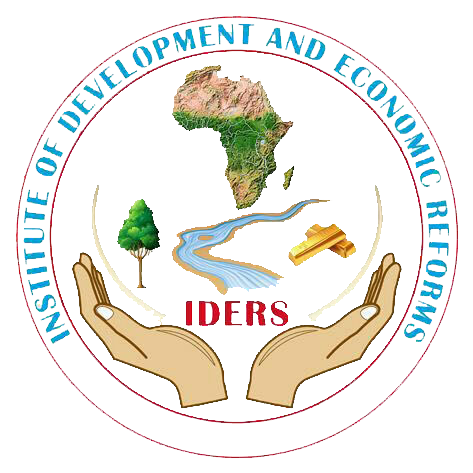Introduction
Over the course of this year( 2016) Democratic Republic of the Congo( DRC) gathered in London( United Kingdom) on the 27th June 2016 highlighted the need to address the economics and development challenges faced by the Democratic Republic of the Congo since its independence in 1960. After a lengthy debate, it was agreed that a think tank be established under the name of the Institute of Development and Economic Reforms Congo ( IDERS) to provide innovative ideas through conducting research with a view to propose economic policies aimed at strengthening development planning for poverty reduction. In the context of the 21st Century development paradigm, innovative policies become important why? Because it will help policy makers and other stakeholders involved in the implementation of country economic and development agenda. It will help policy makers to become aware of the key issues that are of critical importance to development programming and implementation.
Democratic Republic of Congo Post War Reconstruction
The IDERS focuses on researching potential post-war economic and development issues through undertaking independent and rigorous analysis of critical global, regional and national specific challenges and opportunities and offer new thinking on how the challenges could be dealt with through formulation of well thought effective policies for policy makers and other stakeholders.
In this context, the IDERS is of the view that the Democratic Republic of Congo (DRC) has witnessed the mother of all complex violent conflicts since the mid-1990s with an estimated 3.5 million lives lost in this continuing strategy. This has led to development agencies that hitherto shut down their operations which has further constrained the implementation of development projects for economic and socio recovery.
However, the main question is how we do we deal with post war development and economic challenges?
The IDERS seeks to address the challenges of post –civil war economic and social recovery, drawing from direct operation experience in such situation. It will focus on analysing how effective are the current Democratic Republic of Congo( DRC) policies are formulated and implemented and what are the likely impact on the socio-economic recovery and development. What are the key gaps to be identified in order to deal with the challenges?. How do we manage a post war poor economy including dealing with the external assistance community, setting up prioritise for public actions, and undertaking some immediate economic reforms.
The IDERS believes that unless a complete examination of the process of transition from war to economic development, focusing the sectoral priorities as highlighted below:
- Agriculture, food security , animal husbandry and fishery development
- Health and nutrition
- Education
- Peace and conflict resolution
- Research and development
- Energy , and climate change
- Water economy , water policy, and Institution delivery for sustainable water supply and sanitation
- Infrastructure development, investment , and business and industry
- Trade development
- Environmental issues and forest
- Tourism development and other areas of critical importance to development.
- Regional Integration
- Industrial policy and strategy
- State Institutions Reforms and mechanism of delivery ( public policy strategy)
- Governance policy and making it work for economic development
- Human Rights and Economic Development
These are key areas of critical importance to the understanding on how to deal with the challenges faced by the Democratic Republic of the Congo post –war economy and development.
Managing these various core areas of economic development in an effective way through the formulation of effective policies, the IDERS believes that the analysis and evaluation of these sectoral priorities will lead to provide positive implications in the realisation of a long –term sustainable economic growth and reduced poverty among DRC citizens.
Furthermore, the IDERS main work philosophical paradigm has illustrated below:

Source: Patrice Kandolo Kabeya , PhD and Jean Claude Iyoma, Frame work for Effective Economic Development for the Democratic Republic of Congo( 2016).
Using this policy framework to understand , analyse and evaluate and propose concrete policies in disseminating development and economic reforms for poverty reduction is vital in addressing both poorly designed institutions and poorly formulated policies and capturing the identified gaps in policies and institutions to provide new policy and institutions directions for country development and economic growth.
Finally, the IDERS is of the view that the struggle for the Democratic Republic of Congo (DRC) is to develop policies and institutions that will provide aspirations in terms of economic development opportunities for all its citizens.
